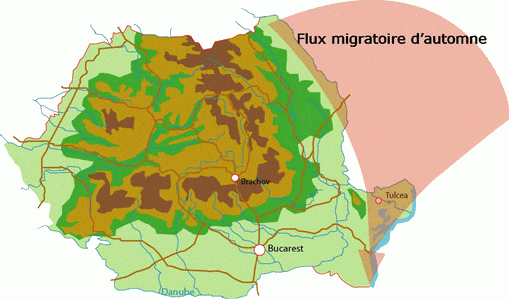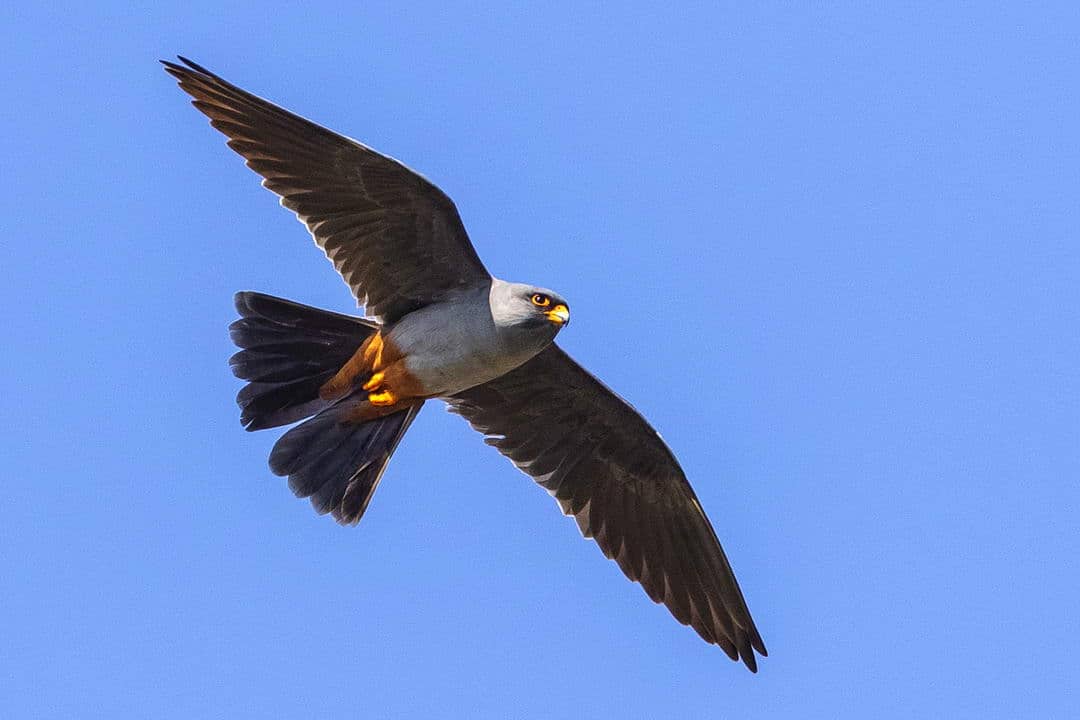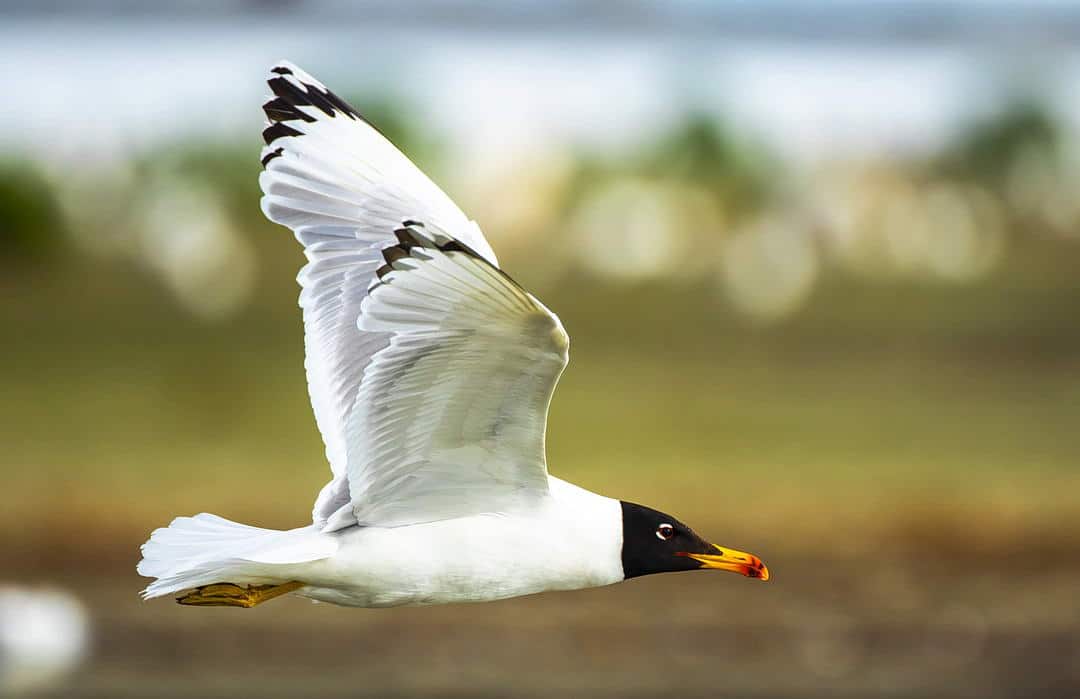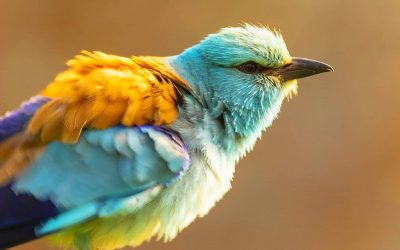Birdwatching in Dobrogea region
Dobrogea region
“This largely dry region nestles between the River Danube, as it flows from south to north before forming the delta, and the lagoons and Black Sea to the east. The landscape is typically rolling steppe and agricultural country, dotted with woodlands and brackish and freshwater lakes. Many of the birds that inhabit the delta can also be seen here and in addition there are some, like Red-breasted Goose, Levant Sparrowhawk, Collared Pratincole, Pied Wheatear, Calandra Lark and Spanish Sparrow that are easier to locate here than in the delta.” (Gerard Gorman, ALULA 4/2000 volume 6)
Diversity in the dry
The map shows the protected areas in Dobrogea region. As you can see more than 50% of the area is under protection. this makes the largest compact protected area in Europe and one of the main birding areas in Romania. On the lower map you can see why this area is so important. The map shows the bird migration pass known as Via Pontica, the most important in Europe.
The birds are concentrated by the Carpathians at West and by the Black Sea (E) forced to follow the sea shore and cross the steppes of Dobrogea. This way masses of birds are crossing this magnificent area every year.
Wildlife
Dobrogea region is home to the rarest species of birds, mammals and plants in Romania. The Ponto-sarmatic stepps together with vast sub-Mediterranean forests form an ideal habitat for wildlife.
274 – bird species
44 – mammal species
1911 – plant species
2240 – insect species
Wild Flowers
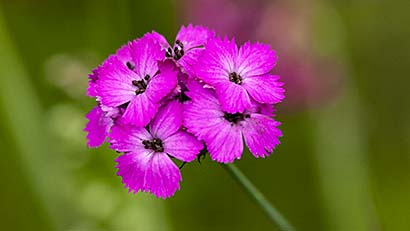
This region represents a complex synthesis of the plant biogeographic areas as it is situated at the southern limit of the Central European and some Crimean species, at the northern limit of the Mediteranean-Balkanic – Pontic species and at the western limit of some Asiatic ones.
The complex structure of the flora and its specificity, beside the Euro-Asiatic species (25%), is conferred by the high proportion of southern – Balkanic, Pontic – Mediterranean, Sub-mediterranean species (25%) and by the Continental, steppe species (17%).
The European and Central European (12%) and Circumboreal (4%) species are less frequent and occur on higher altitudes. All these features confer to Dobrogea the character of synthesis of southeast European flora and not only. A plant hunting trip to Dobrogea is more or less equivalent to a much larger visit to central Europe, northern Greece, Bulgaria, Turkey, the Crimean Mountains and the steppes of Ukraine and Central Asia.
Visit Dobrogea
Chose a tour covering Dobrogea Region
Bear watching in Romania – long weekend
Bird-watching and Bear Watching tour i RomaniaA 4 day bear watching tour in the search of the European Brown Bears. The observations are done from hides organized by the Forestry Ministry. Romania holds the largest population of Brown Bear, Wolf, and Links in...
Birding tour in Danube Delta and Dobrogea
Birding Tour in Danube DeltaA nine day birding tour exploring the vast steppes of Dobrogea, Black Sea shore and the Danube Delta in search of rare birds. Tailor made - up to 20 people. This birding tour has two parts - Dobrogea area with hotel accommodation in Tulcea...
Bird-watching and Bear Watching tour in Romania
Bird-watching and Bear Watching tour i Romania10 DAYS- Bird-watching and Bear Watching tour in Romania covering the Carpathian Mountains, the Danube Delta, the steppes of Dobrogea and the Black Sea shore. This is our best selling tour for many years as it...




































